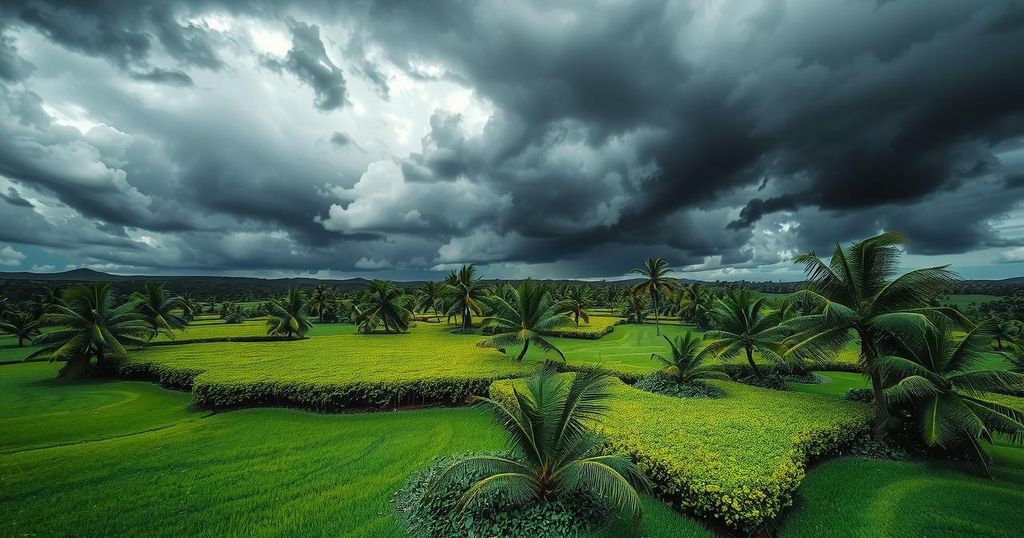Cyclones Heighten Malaria Risk in Madagascar

- Cyclones have heightened the risks of malaria in Madagascar.
- Research indicates massive storms disrupted malaria control programs.
- Vaccinating children can dramatically reduce malaria infections after cyclones.
Unexpected Cyclones Disrupt Malaria Control Efforts
In the ongoing battle against malaria, an unexpected intersection with climate change has emerged in Madagascar. Benjamin Rice, a biologist from Princeton University, initially aimed to gather data to better understand malaria’s dynamics on the island. However, his research took a dramatic turn when Madagascar experienced two catastrophic cyclones in quick succession, wreaking havoc on both the environment and public health infrastructure.
Malaria Infections Spike After Storms
The impact of these storms was significant, damaging critical pathways for malaria control. Roads were rendered impassable, various crops were destroyed, and health distribution networks were disrupted, limiting access to crucial antimalarial drugs and mosquito bed nets. Rice’s research team surveyed 500 households, collecting data before and after the storms. Astonishingly, they discovered that within just two months post-cyclone, areas showed alarming rates of malaria infections, with nearly half of school-age children and over a third of younger ones testing positive for the disease.
Vaccines Provide Hope Amid Climate Extremes
Despite the grim findings of the study, there’s a silver lining. The researchers highlighted that newly available malaria vaccines could play a crucial role in aiding recovery efforts from the devastation of storms. If around 70% of children had been vaccinated beforehand, projections suggest that symptomatic infections could have decreased by up to half. Kelly Searle, an epidemiologist from the University of Minnesota, noted the potential of these vaccines in enhancing immunity and safeguarding public health in the wake of climate-related disasters. The insights gained from this research reveal how malaria vaccine implementation could bolster control efforts as nations brace for increasingly severe weather events due to climate change.
The intersection of climate change and malaria in Madagascar presents a complex challenge. As cyclones continue to occur and disrupt malaria control efforts, the potential benefit from malaria vaccines becomes increasingly critical. By integrating these vaccines into public health strategies, communities might better withstand the impacts of climate disturbances and reduce the burden of malaria.







